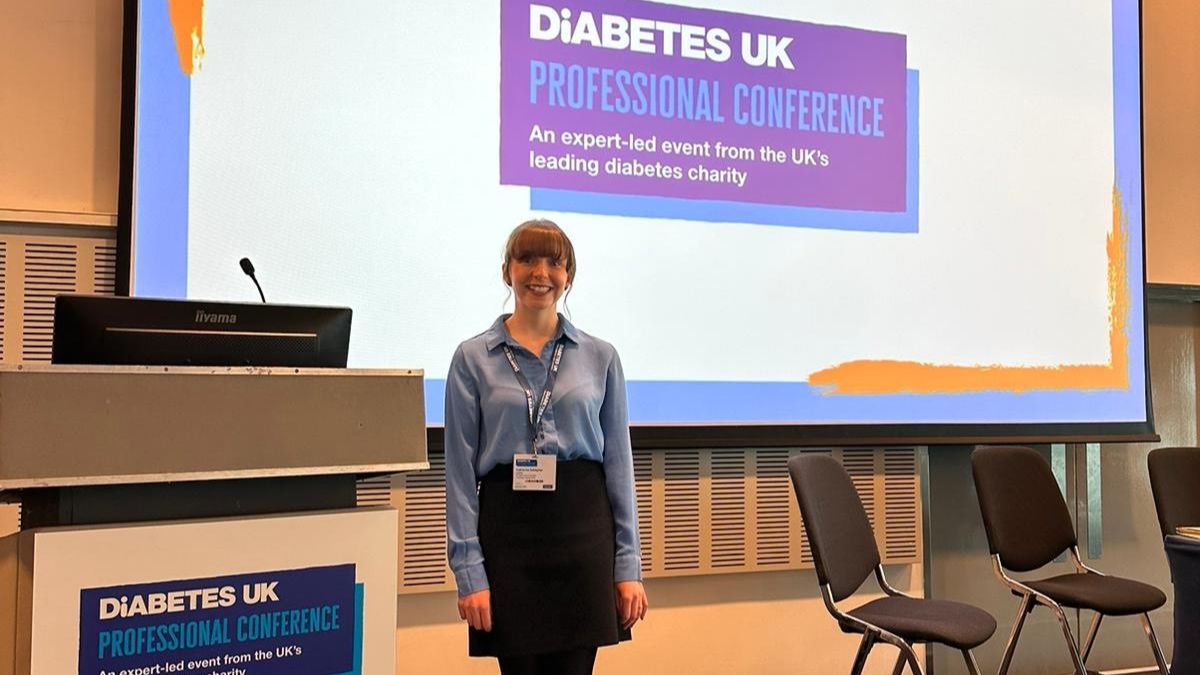Intern Profile: Catherine Gallagher

NIHR ARC NWC Research Intern Catherine Gallagher is a Senior Diabetes Specialist Dietician at St Helens & Knowsley NHS Teaching Hospitals and is undertaking a research project to identify if preventative interventions in early pregnancy can target key modifiable health behaviours in pregnant women, reducing their risk of gestational diabetes (GDM) development.
Catherine construed the importance of her research in which falls within the NIHR Prevention and Public health’ theme for 2024-5 “In the NHS both health care professionals and services are also overwhelmed. This has been clearly outlined in the Saving babies Lives report that states that ‘in 2022 63% of midwives in England has felt unwell in the last 12 months because of stress’.
It also outlines that for every £1 spent on maternity services only 1p is spent on research further research in antenatal services including diabetes antenatal care is urgently required. Focusing on prevention has the potential to reduce the volume of GDM referrals, supporting teams to deliver the highest standard of care within antenatal services. This in turn might support staff morale, wellbeing, retention and overall improve patient care and experience.”
Catherine who works alongside the ARC NWC ‘Person centred complex care’ and ‘Improving Population Health’ themes said, “St Helen’s is ranked 26th most deprived local authority in 2019 (out of 317). Levels of obesity and diabetes are higher than the national average for England. Poverty, deprivation and mortality rates are high and inequalities also exist within St Helens itself.
Inequalities also exist within St Helens itself. Those living in the most deprived areas of St Helens live on average 8-10 years less than those in the least deprived areas. There is a real social gradient in health. I want to ensure the research I conduct in St Helens is meaningful to all living across the borough.”
Catherine sustained, “I anticipate that this research has potential to reduce the incidence of GDM. This in turn could improve pregnancy outcomes and long-term health outcomes. GDM places a huge emotional burden on women with GDM and their families.
An intervention in early pregnancy has scope to educate women about the importance of lifestyle factors during pregnancy, which may change health behaviours and reduce the incidence of GDM and future metabolic disease.”
Catherine who plans to apply for a NIHR Doctoral Clinical and Practitioner Academic Fellowship (DCAF) in 2024 will complete an initial assessment of the intervention prior to running a feasibility study and anticipates that her PhD project will consist of co-developing materials and knowledge exchanges with various stakeholders to provide interventions to reduce the risk of gestational diabetes.
Subsequently the project has been awarded a Public Involvement fund grant to host Patient and Public involvement (PPI) meetings. Highlighting the importance of PPI in order to apply the findings in a clinical setting Catherine said, “This funding allowed me to start having conversations with women with lived experiences of Gestational Diabetes (GDM).”
“During my internship programme I have had further time and opportunities to strengthen my PPI work. I have presented at the ARC NWC Advisers Forum in October 2023. I have also secured funding from the diabetes team research fund at St Helen’s Hospital to complete further PPI meetings with women who have had GDM over the past six months.”
“I hope to recruit a PPI rep or PPI group from these sessions to continue to support this research idea at all stages of the project including the application process and the PhD itself if successful for a DCAF award.”
When asked how she will consider health inequalities in her project Catherine replied, “As part of my internship, I have attended a Health inequalities Assessment Tool (HIAT) workshop delivered by Dr Katerina Panagaki. I have also listened to the ‘Equity Lens’ podcast hosted by members of the ARC North West Coast.
Both have really supported me to impose an equity lens at all stages of my project including in my PPI work. I have engaged with Paul Steele (St Helen’s CCG Communication & Engagement lead) and Health Watch St Helens to support me to better engage with a diverse range of pregnant women from all corners of the community.”
The diabetes antenatal team recently received a ‘highly commended’ award at the Quality in Care diabetes awards ceremony, where Catherine led on the application. The judges commented that the equality and deprivation section was well thought out and greatly considered health inequalities in the delivery of their diabetes antenatal care.
Expanding on the importance of PPI and co-production Catherine remarked “As this patient demographic will largely include patients with lower levels of health literacy, education and financial security and employment. PPI co-production within this research will be essential in making the information and intervention accessible to this patient group. I will continue to reflect on my own racial, ethnic, and cultural background and my own experiences in order to ensure that this doesn’t bias or influence my research.”
To get involved or learn more about this project please contact Catherine on Catherine.gallagher2@sthk.nhs.uk